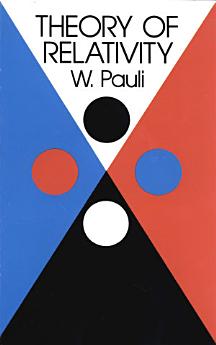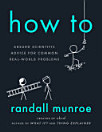Theory of Relativity
Giới thiệu về sách điện tử này
Pauli's early writings, Theory of Relativity, published when the author was a young man of 21, was originally conceived as a complete review of the whole literature on relativity. Now, given the plethora of literature since that time and the growing complexity of physics and quantum mechanics, such a review is simply no longer possible.
In order to maintain a proper historical perspective of Professor Pauli's significant work, the original text is reprinted in full, in addition to the author's insightful retrospective update of the later developments connected with relativity theory and the controversial questions that it provokes.
Pauli pays special attention to the thorny problem of unified field theories, its connection with the range validity of the classical field concept, and its application to the atomic features of nature. While an early skeptic of solutions along classical lines, Pauli's alternative model was subsequently supported by the newer epistemological analysis of quantum or wave mechanics. Given the many pieces of the puzzle yet to be fitted into a cohesive picture of relativity, the differences of opinion on the relation of relativity theory to quantum theory are merging into one of science's great open problems.
Pauli provides additional informative views on: problems beyond the original frame of special and general relativity; the conflict between "classical physics" and the quantum mechanical approach; the importance of Einsteinian theory in the development of physics; and finally, the epistemological analysis of the finiteness of the quantum of action and the move away from naïve visualizations.
Xếp hạng và đánh giá
Giới thiệu tác giả
Wolfgang Pauli: The Young Genius
Wolfgang Pauli (1900–1958), Austrian by birth, was one of the most influential physicists of the twentieth century and winner of the 1945 Nobel Prize in Physics for the discovery of the Pauli exclusion principle in quantum mechanics. His classic work on relativity was first published in Germany in 1921, when Pauli was twenty-one years old. The physicist A. Sommerfeld wrote this in his Preface to the 1921 German edition of Pauli's work:
"In view of the apparently insatiable demand, especially in Germany, for accounts of the Theory of Relativity, both of a popular and of a highly specialized kind, I felt I ought to advise the publishers to arrange for a separate edition of the excellent article by Herr W. Pauli, Jr., which appeared in the Encyklopadie der mathematischen Wissenschaften, Vol. V. Although Herr Pauli was still a student at the time he was not only familiar with the most subtle arguments in the Theory of Relativity through his own research work, but was also fully conversant with the literature of the subject."
First translated and published in English in 1958, and reprinted by Dover in 1981, Pauli's Theory of Relativity continues to find readers another fifty years later. In 2000, Dover reprinted the six volumes of Pauli's collected lectures on physics which had first been published by MIT: Electrodynamics (Volume 1), Optics and the Theory of Electrons (Volume 2), Thermodynamics and the Kinetic Theory of Gases (Volume 3), Statistical Mechanics (Volume 4), Wave Mechanics (Volume 5), and Selected Topics in Field Quantization (Volume 6).
In 1928, Pauli, not yet thirty years old, was appointed Professor of Theoretical Physics at ETH Zurich where he did much of his most important work. Following Germany's takeover of Austria in 1938, and the outbreak of World War II in 1939, Pauli emigrated to the United States where he was Professor of Theoretical Physics at Princeton. In 1946, he became a naturalized American citizen before returning to Zurich, where he mostly lived for the last decade of his life.











